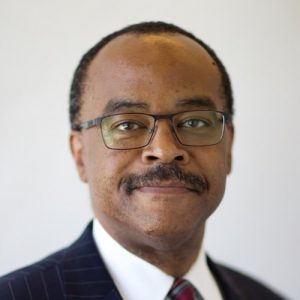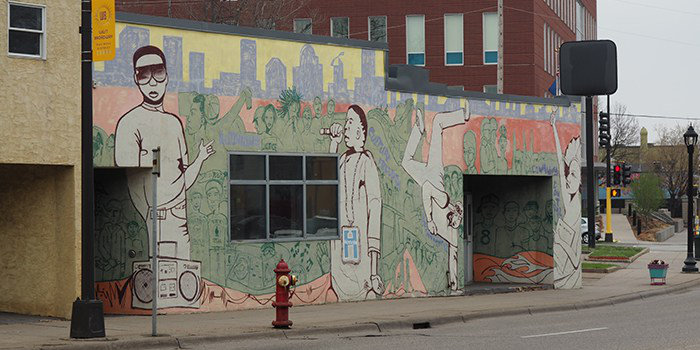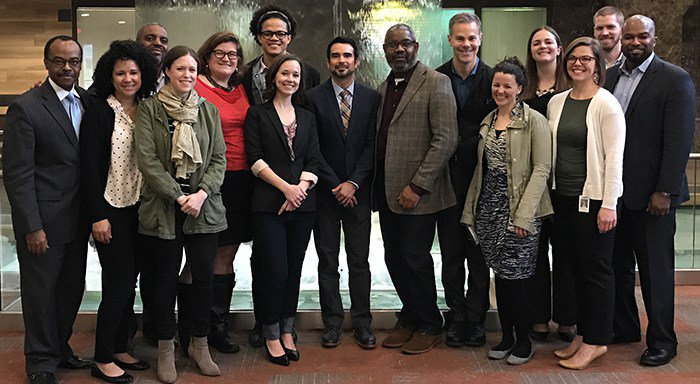An Inside Look at Equitable Economic Development in Minneapolis
This post is part of a series on NLC’s Equitable Economic Development (EED) Fellowship.
Jim Terrell works in community planning and economic development policy for the city of Minneapolis. This week, he talks about the city’s new Access to Capital program and why an equitable approach to economic development is a priority for Mayor Betsy Hodges.
Carlos Delgado: Jim, it’s always a pleasure to talk to you. I’m excited to hear what progress Minneapolis has made since it began participating in NLC’s Equitable Economic Development (EED) Fellowship, and why equity is important for Mayor Hodges. First, could you tell us a little bit about your professional background?
Jim Terrell: Thank you, Carlos, for the opportunity to share Minneapolis’s story. Currently, I’m the principal project coordinator in the Department of Community Planning and Economic Development (CPED) for the city of Minneapolis. Before joining CPED, I spent more than 30 years in the private sector primarily focusing on revenue bond financing, commercial & consumer lending, SBA lending, business plan authoring, and seed capital financing.

Jim Terrell is the principal project coordinator for the Minneapolis Department of Community Planning and Economic Development.
CD: With that extensive background in lending and financing, you were a natural fit for Minneapolis’s EED Fellowship project, which has kicked off what the city refers to as its “Access to Capital” program. Can you tell us why an equitable economic development agenda is a priority for your city and its mayor? And what problems you are trying to solve with the “Access to Capital” program?
JT: Equity and inclusion are both key principles driving the work done in the city of Minneapolis. As the city’s website notes, “In Minneapolis, all of our work to eliminate socio-economic disparities centers around our belief that what we look like and where we come from should not determine the benefits, burdens or responsibilities we bear in our society.” This philosophy is one of the reasons for the city’s strong support of the Equitable Economic Development Fellowship.
Through its Department of Community Planning and Economic Development (CPED), the city of Minneapolis is focused on its mission to grow a vibrant, livable, safely-built city for everyone. One of the primary challenges in achieving this mission is the lack of access to the tools and resources that some of the city’s most vulnerable citizens desperately need. The Access to Capital program is a comprehensive effort to tear down barriers in accessing financial knowledge and social capital for the city’s most disenfranchised citizens, especially in the federally-designated Promise Zone comprised mostly of North Minneapolis.

A community mural in the developing district of North Minneapolis. (NLC)
CD: What steps have the city’s CPED department and its EED team taken while participating in the EED Fellowship this past year?
JT: Since the city’s acceptance into the EED Fellowship in June 2016, we have worked diligently with a number of stakeholders to more clearly understand and define the barriers facing citizens of color in Minneapolis as they relate to the Access to Capital program. We have strengthened a number of existing partnerships and are developing new partnerships, programs and funding sources that will ultimately form the framework that will fully establish the Access to Capital program.
CD: I’m sure Minneapolis is on the right track, and that we’ll soon hear about the official launch of the Access to Capital program. A key component of the EED Fellowship year is the technical assistance/peer exchange visits. What was your experience hosting peer fellows and subject matter experts, and what advice did the visiting team gave to the city of Minneapolis?
JT: The experience of hosting EED Peer Fellows and Visiting Technical Assistance Experts was both rewarding and exhausting. The visiting team takes the work very seriously and works tirelessly and comprehensively to deliver insightful and useful recommendations in line with the host city’s fellowship topic. The advice given by the fellowship’s technical assistance team to the city of Minneapolis was timely and valuable. It helped us to make greater use of existing programs and partnerships and to reimagine Access to Capital as a marketing framework of new and existing programs, as compared to developing everything from scratch.
CD: I have to agree with you, Jim — the technical experts and the peer fellows from Boston and Charlotte were outstanding in their analysis of the information we gathered in that short period of time, and in reporting back with their recommendations. Another component of the EED Fellowship is the opportunity for professional development. Any comments on that?
JT: There is extraordinary value in the network of associates that comes with admission to the EED Fellowship. I have personally learned a lot from my 2016 fellows, and will continue learning from them long after the closing retreat in June 2017. I expect to work with EED Fellows on projects in Minneapolis and in their respective cities as well as on personal development. One tangible result is my current effort to reactivate my status as a Certified Economic Developer (CEcD) based on discussions with a fellow from Charlotte, North Carolina.
CD: Jim, I want to thank you for all your hard work and dedication during the EED Fellowship year. The 2016-2017 class was a special one. I’m sure our readers are eager to know when the official Access to Capital launch will happen. Any advice to the incoming EED Fellows and the 2017 class?
JT: Carlos, thank you — and on behalf of the city of Minneapolis, thank you to NLC, the Urban Land Institute, and PolicyLink for creating this demanding but rewarding program. My advice to the new EED Fellows is to be open to new ways of viewing old challenges. All cities and municipalities are facing the same challenges, and there are no across-the-board solutions — our role is like trying to patch holes in the hull of the Titanic. We’ll have some successes, and we will have some failures. But if we emulate the successes of the other EED Fellows, taking their good ideas and changing them so they can be applied in our own cities, we will have the opportunity to see immediate results from the genuine peer learning that the EED Fellowship hopes to achieve.

The Minneapolis EED Fellowship class meets with NLC staff, visiting fellows from other EED Fellowship cities, and community stakeholders. (NLC)
Minneapolis is one of six cities participating in this year’s EED fellowship; view the blog series for more stories and experiences from other fellows.



